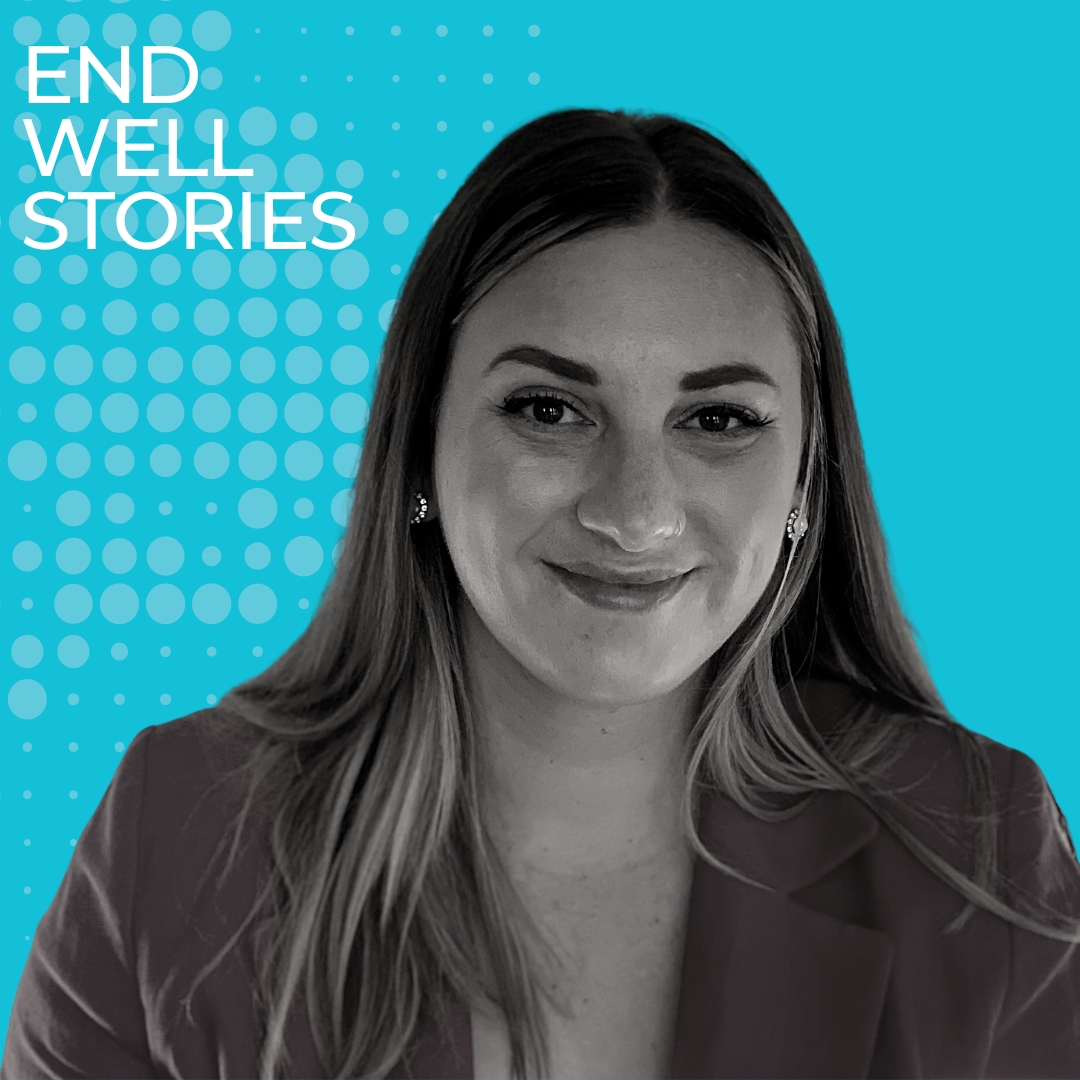by Mandi Gundersen
I was born to a grieving mother. As she watched me grow in her stomach, she also witnessed the equally imminent death of her own mother. I think of my mom, around the age that I am now, seeing her mother’s body succumb to ovarian cancer while her own petite frame shifts and expands to accommodate my impending presence. Grandma died just a few months before I was born, the first grandchild on the maternal side of the family. My presence brought them joy in a time of grief and also a reminder that our beloved matriarch wasn’t there to see it. Her death and my birth are forever intertwined – I even share her name.
Years later my mother told me of a recurring dream in which she is reunited with her mother. Surprised to see her, she runs over and tells her to wait. ‘Stay right here. I want you to meet my baby’. She returns to an empty room with me cradled in her arms.
In retrospect it makes sense that I turned out to be an end of life social worker. I am naturally buoyant in the seas of grief and have experienced my fair share of loss. It is my job to bear witness to the sorrow while also holding space for hope. There is value in the ambiguous space where grief and loss often reside, and we as a whole are too quick to assuage our discomfort rather than sit in the unknown. Much of my job is helping patients and their families unpack their feelings around death in order to be present for the dying process, one that is hopefully as natural and sacred as that of childbirth.
It has become increasingly difficult to see the bright side in a country that does not care for its citizens or its healthcare workers, something that became evident to me at the lack of response to a global pandemic. The most difficult aspect of my job is not the illness or death but is rather in the disregard for elders and their paid and unpaid caregivers. In our society we lose our value as soon as we become unable to work, and those caring for our elders or the disabled hold a necessary position but one that is rarely valued.
Let me be clear, the deaths that I witness are usually planned and natural, but the levels of death and grief that we are faced with in this country are often neither. Hate crimes, mass shootings, and climate change are losses that are hugely ambiguous and seemingly unending. Our inability to acknowledge grief as a whole contributes to our inability to address these widespread issues. Grief and loss are universal yet minimized in a uniquely American way.
We need to be discussing grief, death and our own mortality openly and often. I dream of a world in which we talk about the dying process with the ease that we speak of birth, approaching the bookends of life with the same curiosity and fervor that they both deserve.
For me, living well means making space for all parts of life. Being authentic in my personal life and being with my patients in a meaningful way requires me to be present, acknowledge truths, and sit with the beautiful and often uncomfortable realities of being alive. I don’t always know what to say or how to be, but usually just being there is enough.
Mandi Gundersen is a Hospice Social Worker living in Seattle, WA. She specializes in dementia care and is proud of her work at a skilled nursing facility during the peak of the global pandemic. Mandi has worked in aging and disability for 20 years and she approaches her role in death and dying with an intersectional and justice/liberation lens.
This story was submitted through End Well Stories. If you would like to share a story of your own, please submit HERE.
